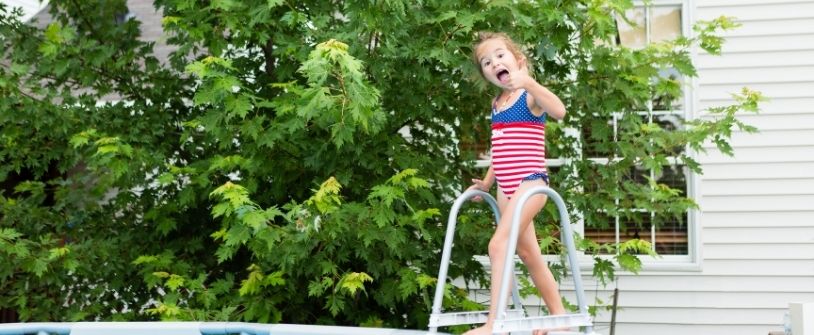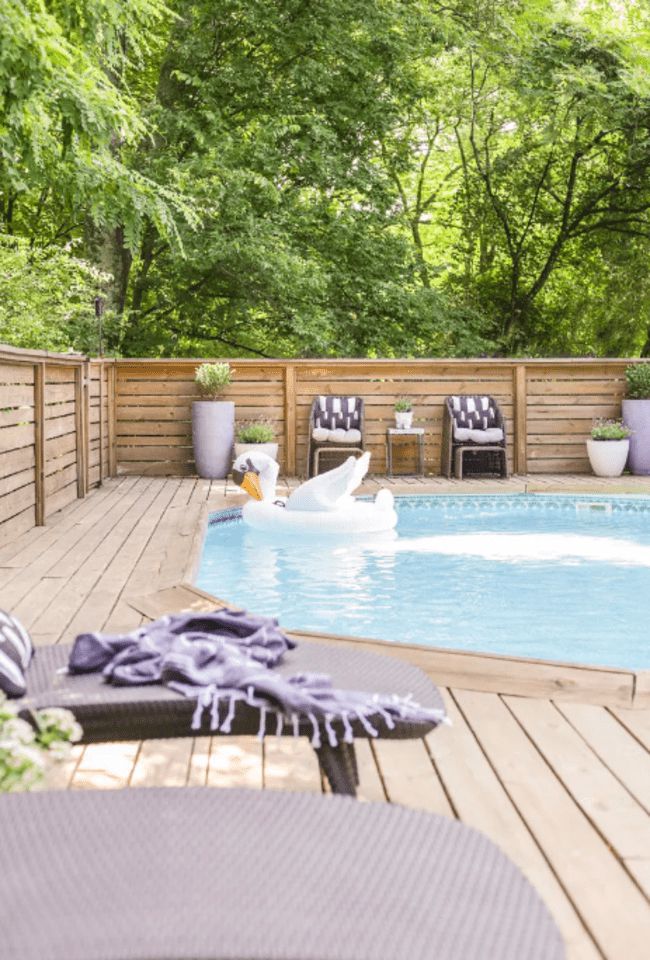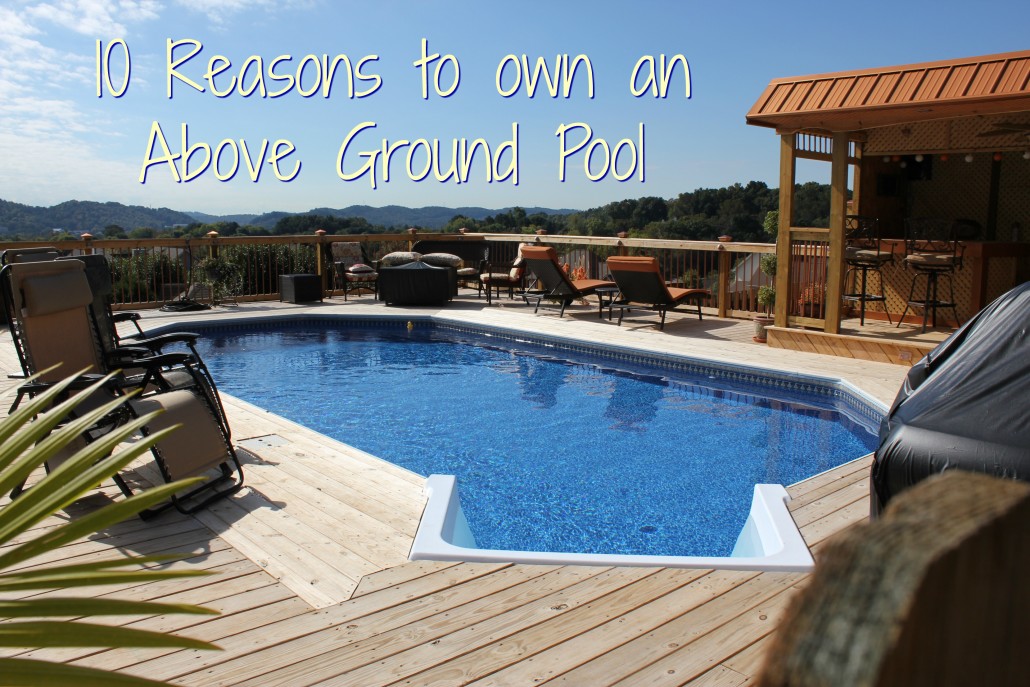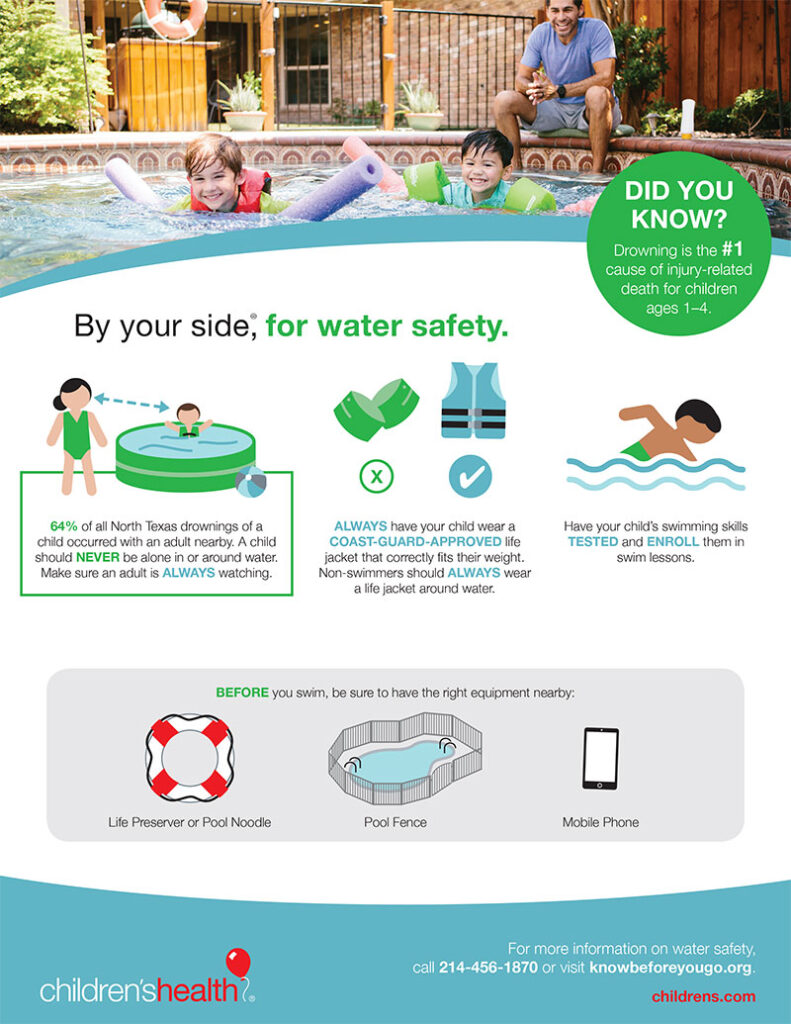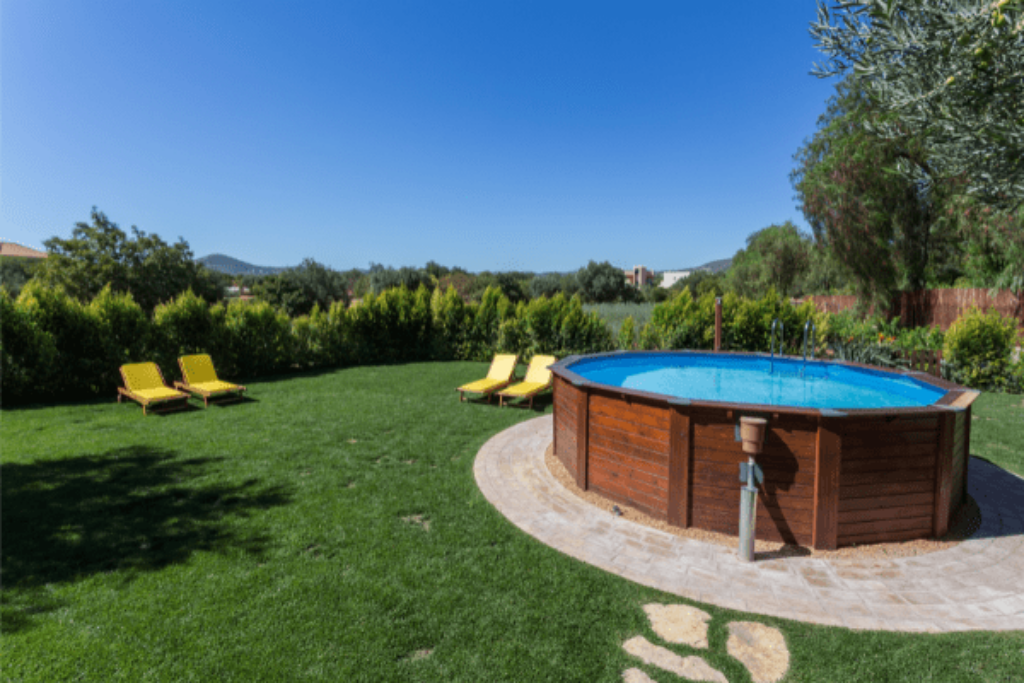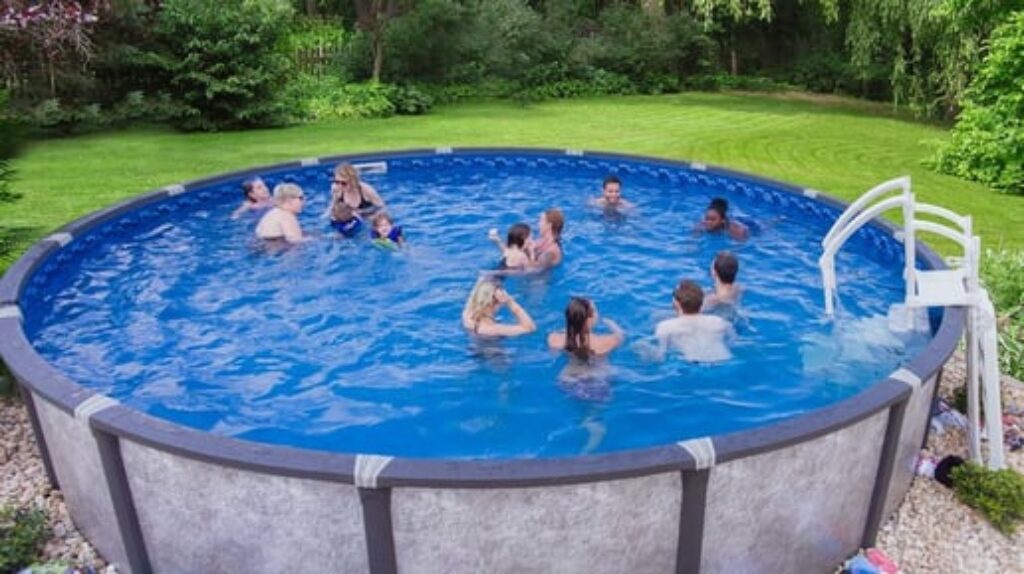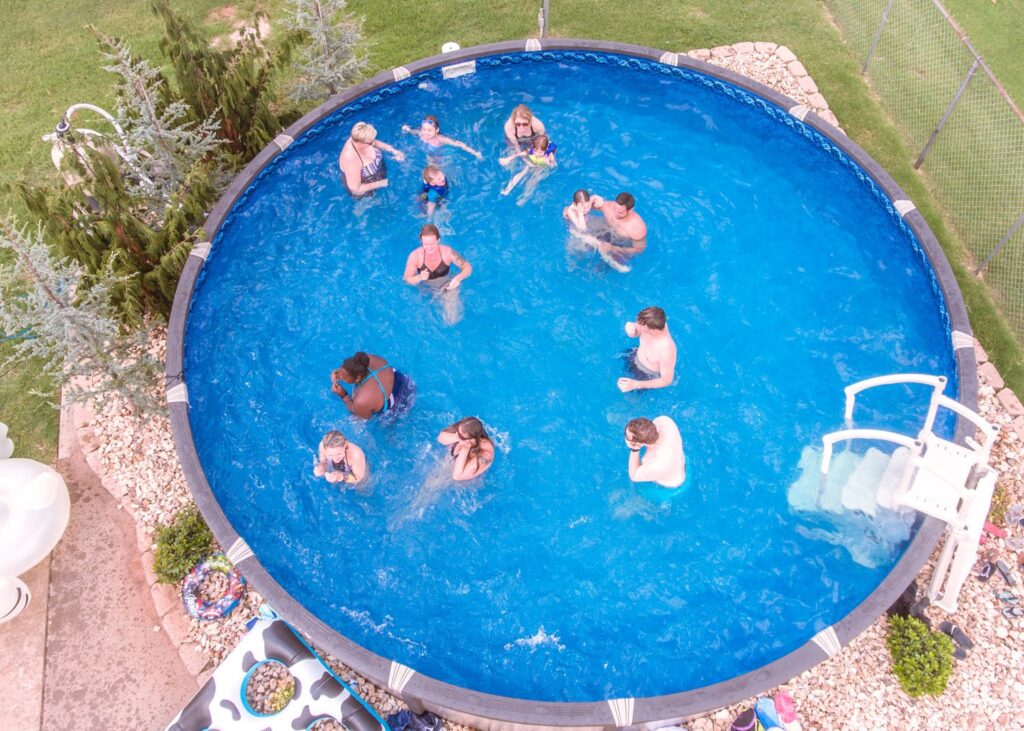In “The Family-Friendly Guide to Above Ground Pool Safety,” you will discover essential tips and precautions to ensure the safety of your loved ones while enjoying your above ground pool. From securing the perimeter to implementing water safety measures, this article provides a comprehensive guide that empowers you to create a secure and enjoyable environment for your family’s pool adventures. Dive into this informative guide and gain peace of mind as you make lasting memories in your above ground pool.
Proper Installation
Choosing a Safe Location
When it comes to choosing a safe location for your above ground pool, there are a few factors to consider. First, make sure the area is free from any overhead obstructions such as trees or power lines. This will prevent any potential accidents or damage caused by falling branches or electrical hazards. Additionally, the location should be away from any steep slopes or uneven terrain to ensure a level base for your pool.
Preparing the Ground
Before installing your above ground pool, it is important to properly prepare the ground. Start by clearing the area of any debris, rocks, or sharp objects that could puncture the pool liner. Next, level the ground using a shovel or a leveling tool to create a smooth surface. This will not only provide stability for your pool but also prevent any potential accidents or injuries caused by uneven ground.
Ensuring a Stable Base
To ensure a stable base for your above ground pool, it is recommended to use a solid foundation such as a concrete pad or a compacted sand base. This will prevent any sinking or shifting of the pool over time and provide a secure footing for swimmers. Additionally, consider using a pool pad or a ground cloth underneath the pool to further protect the pool liner from any potential damage.
Assembling the Pool
Once you have prepared the ground and ensured a stable base, it’s time to assemble your above ground pool. Follow the manufacturer’s instructions carefully and enlist the help of a friend or family member to make the process easier and safer. Be sure to check that all components are securely connected and in place before adding water to the pool.
Leveling the Pool
After assembling the pool, it is crucial to check and adjust the level of the pool. A level pool not only looks more appealing but also helps maintain proper water circulation and balance. Use a carpenter’s level or a smartphone app to ensure that the pool is evenly balanced. This will not only enhance the safety of your pool but also extend the lifespan of the pool and its equipment.
Secure Fencing
Installing a Perimeter Fence
Installing a perimeter fence around your above ground pool is one of the most effective ways to enhance safety. The fence should completely enclose the pool area, preventing unauthorized access and keeping children and pets out when unsupervised. Choose a fence that is at least four feet high and has no gaps or openings that a child could squeeze through.
Choosing a Height
When choosing the height of your pool fence, it is important to consider the safety and age of the intended pool users. For families with young children, a taller fence might be necessary to prevent climbing over. In some jurisdictions, there might be specific height requirements that need to be followed. It is always a good idea to check local building codes and regulations to ensure compliance.
Using Childproof Latches
To further enhance the safety of your pool fence, make sure to use childproof latches on the gates. These latches should be high enough that young children cannot reach or operate them. Additionally, consider using self-closing hinges to ensure that the gate is always closed and latched securely after each use. Regularly inspect these latches and hinges to ensure they are functioning properly.
Adding Self-Closing Gates
In addition to childproof latches, consider installing self-closing gates on your pool fence. These gates automatically close and latch after each use, reducing the risk of accidental entry. Self-closing gates provide an added layer of protection and help prevent children from accessing the pool area unsupervised. Remember to always keep the gates closed when the pool is not in use.
Regular Inspection and Maintenance
Regularly inspecting and maintaining your pool fence is essential to ensure its effectiveness. Check for any signs of wear or damage, such as loose hinges, broken latches, or bent sections. Repair or replace any damaged parts immediately to maintain the integrity of the fence. Additionally, regularly trim any vegetation around the fence that may provide a potential foothold for climbing.
This image is property of www.childrens.com.
Supervision
Assigning a Responsible Adult
Assigning a responsible adult to supervise pool activities is crucial for ensuring the safety of all pool users. This designated adult should have swimming skills, be attentive, and understand the importance of pool safety rules. Rotate this responsibility among adults to ensure everyone gets a chance to enjoy the pool while maintaining a safe environment.
Implementing a Buddy System
Implementing a buddy system is an effective way to enhance pool safety, especially when children are involved. Encourage swimmers to always have a buddy with them while in the pool. This ensures that no one is left unsupervised or in potentially dangerous situations. Remind swimmers to stay close to their buddy and check on each other regularly.
Using Water Watchers
Water watchers are individuals assigned the sole responsibility of supervising swimmers and ensuring their safety. These designated watchers should not engage in any other distractions, such as reading, talking on the phone, or using electronic devices. The primary focus should be on constantly monitoring the pool area for any signs of distress or potential accidents.
Rotating Supervision Shifts
To avoid fatigue or distraction, it is important to rotate supervision shifts regularly. Continuous supervision for extended periods can lead to decreased attentiveness. By rotating supervision shifts, each designated adult can have a chance to rest, refresh, and recharge. This ensures a higher level of pool safety throughout the day.
Educating Children about Pool Rules
Teaching children about pool rules and safety precautions is essential for their own well-being. Make sure they understand the importance of never swimming alone, listening to the designated adult in charge, and following pool rules. Educate them about potential hazards such as diving in shallow water, running around the pool, or playing with electrical devices near the pool.
Safety Equipment
Investing in Life Jackets and Floatation Devices
Investing in life jackets and floatation devices is a proactive approach to pool safety, especially for non-swimmers or individuals with limited swimming abilities. Life jackets should fit properly and be worn at all times while in the pool. Floatation devices such as arm floaties or swim rings can provide additional support for young swimmers but should never replace adult supervision.
Installing Pool Alarms
Installing pool alarms is an effective way to enhance pool safety, especially during unsupervised times or when the pool is not in use. These alarms can detect motion in the pool and alert caregivers to potential unauthorized entry. Choose a pool alarm that suits your needs and installation requirements, and regularly test and maintain it to ensure proper functionality.
Using a Shepherd’s Hook
A shepherd’s hook is an indispensable tool for pool safety. This long pole with a hook at the end enables rescuers to reach individuals in distress without entering the water. Keep a shepherd’s hook nearby the pool at all times and make sure all pool users, especially adults, know how to use it properly in case of emergencies.
Keeping a First Aid Kit Nearby
Having a well-stocked first aid kit nearby is essential in any pool area. The kit should include basic first aid supplies such as bandages, antiseptic ointment, scissors, and a CPR mask. Familiarize yourself with the contents of the kit and ensure that it is easily accessible to provide prompt medical assistance in case of accidents or injuries.
Learning CPR and Basic Lifesaving Techniques
Knowledge of CPR (cardiopulmonary resuscitation) and basic lifesaving techniques can significantly improve the chances of survival in drowning incidents. Enroll in a CPR certification course to learn the proper techniques for administering CPR and rescue breathing. Stay up-to-date with your CPR certification and encourage other family members or regular pool users to do the same.
This image is property of i0.wp.com.
Swimming Lessons
Enrolling Family Members in Swimming Lessons
Enrolling family members in swimming lessons is a proactive approach to pool safety. Learning how to swim not only improves confidence in the water but also provides essential life-saving skills. Find a reputable swim lesson provider in your area and enroll both children and adults in age-appropriate classes. Regularly practice swimming skills and reinforce water safety education at home.
Teaching Water Survival Skills
Apart from swimming lessons, it is important to teach water survival skills to all family members, regardless of their swimming abilities. These skills include floating, treading water, and reaching for safety. Knowing how to stay calm and react appropriately in water emergencies can greatly increase the chances of survival for individuals of all ages.
Educating about Drowning Risks
Educating family members about the risks and realities of drowning is essential for creating a safe pool environment. Discuss the dangers of unsupervised swimming, the importance of following pool rules, and the potential hazards in and around the pool area. Encourage open dialogue about water safety and address any concerns or questions that may arise.
Regular Water Safety Education
Continual water safety education is crucial to ensure that family members stay informed and updated on the latest safety tips and practices. Share informative articles, books, or videos about pool safety. Include topics such as identifying rip currents, recognizing the signs of distress in swimmers, and understanding other potential hazards associated with water activities.
Practicing Safe Water Entry and Exit
Practicing safe water entry and exit is an important aspect of pool safety that is often overlooked. Teach family members to use ladders or steps when entering or exiting the pool and discourage jumping or diving into shallow water. Make sure that everyone understands the proper technique for climbing in and out of the pool safely to prevent slips, falls, or injuries.
Sun Protection
Applying Sunscreen Regularly
Applying sunscreen regularly is vital to protect your skin from harmful UV rays while enjoying the pool. Choose a broad-spectrum sunscreen with a high SPF (sun protection factor) and apply it generously to all exposed areas of the skin. Reapply every two hours or more frequently if swimming or sweating excessively.
Using Protective Clothing and Hats
Wearing protective clothing and hats can provide an additional layer of sun protection while in the pool area. Choose lightweight and breathable fabrics that cover the arms, legs, and neck. Wide-brimmed hats that shade the face, neck, and ears are also highly recommended. Encourage family members to wear these protective items, especially during peak sun hours.
Finding Shade Areas
Finding shade areas around the pool is essential for reducing the risk of sunburn and heat-related illnesses. Set up umbrellas or canopies in strategic locations to provide a shaded retreat from the sun’s rays. Alternatively, consider planting trees or installing permanent structures to create natural shade areas that can be enjoyed for years to come.
Staying Hydrated
Staying hydrated is crucial when spending time in the pool, especially during hot summer days. Provide plenty of water for family members to drink throughout the day. Encourage regular hydration breaks and remind everyone to drink water even if they do not feel thirsty. Dehydration can lead to fatigue, dizziness, and other heat-related illnesses.
Monitoring Sun Exposure Time
Monitoring sun exposure time is essential to prevent overexposure and sunburn. Keep track of the time spent in the pool area and take regular breaks in shaded areas or indoors. Limit sun exposure during peak hours when UV rays are the strongest. By monitoring sun exposure time, you can help protect your family’s skin and prevent the harmful effects of the sun.
This image is property of info.countryleisuremfg.com.
Chemical Safety
Understanding Pool Chemicals
Understanding the basics of pool chemicals is essential for maintaining a safe and healthy swimming environment. Familiarize yourself with common pool chemicals such as chlorine, pH adjusters, and algaecides. Learn how to test and balance the chemical levels in your pool to prevent any potential health risks or adverse reactions.
Properly Storing Chemicals
Properly storing pool chemicals is crucial for both personal safety and the effectiveness of the products. Store all pool chemicals in a cool, dry, and well-ventilated area away from direct sunlight and moisture. Follow the manufacturer’s instructions for storing specific chemicals, and never mix different chemicals together as they can produce dangerous reactions.
Following Manufacturer Instructions
Always follow the manufacturer’s instructions when using pool chemicals. Use the recommended amounts and avoid overdosing, as this can lead to imbalanced water chemistry and potential health hazards. Read and understand the safety precautions and warnings on the labels, and wear appropriate protective gear such as gloves and goggles when handling chemicals.
Using Protective Gear
When handling pool chemicals, it is important to use appropriate protective gear to minimize the risk of contact with the skin, eyes, or respiratory system. Wear chemical-resistant gloves, safety goggles, and a protective mask or respirator. These precautions will help protect you from harmful fumes and potential chemical splashes.
Maintaining Proper Chemical Balance
Maintaining proper chemical balance is essential for a safe and enjoyable swimming experience. Regularly test the water for pH, chlorine levels, and other important indicators. Follow the recommended guidelines for adjusting chemical levels and seek professional assistance if needed. A well-balanced pool not only promotes the health of swimmers but also helps prevent algae growth and other water-related issues.
Regular Maintenance
Cleaning the Pool
Regular cleaning of your above ground pool is essential for maintaining water clarity and preventing the buildup of debris or algae. Skim the surface of the pool daily to remove leaves, bugs, and other floating debris. Periodically vacuum the pool to remove any settled dirt or debris on the pool floor. Brush the walls and steps to prevent the growth of algae or other contaminants.
Checking Equipment Functionality
Regularly checking the functionality of your pool equipment ensures that everything is working properly and reduces the risk of malfunctions or accidents. Inspect the pump, filter, and heater regularly to ensure they are functioning as intended. Check for any signs of damage, leaks, or unusual noises. Address any issues promptly to prevent further damage or potential hazards.
Inspecting the Filter System
The filter system is an integral part of your above ground pool’s water circulation and cleanliness. Regularly inspect the filter and clean or replace the filter media as recommended by the manufacturer. Stay attentive to any signs of reduced water flow or increased pressure, as this may indicate a clogged or malfunctioning filter system. Proper filter maintenance ensures optimal pool water quality.
Monitoring Water Quality
Monitoring the quality of your pool water is crucial for ensuring a safe and healthy swimming environment. Test the water regularly using a reliable water testing kit to check the pH, chlorine levels, and other key parameters. Adjust the chemical balance as needed to keep the water clean and balanced. Maintaining proper water quality helps prevent the growth of algae and the spread of waterborne illnesses.
Addressing Repairs promptly
Addressing any necessary repairs promptly is essential for the safety and longevity of your above ground pool. Regularly inspect the pool for any signs of damage, such as leaks, cracks, or tears in the liner. Replace damaged or worn-out parts immediately and seek professional help if needed. Ignoring necessary repairs can lead to further damage and compromise the safety of the pool.
This image is property of info.countryleisuremfg.com.
Emergency Preparedness
Creating an Emergency Action Plan
Creating an emergency action plan is crucial to ensure a prompt and effective response in case of accidents or emergencies. Discuss and establish a plan with your family members, outlining the steps to take in various emergency scenarios. Include procedures for contacting emergency services, performing CPR, and providing first aid. Post the emergency action plan near the pool for easy reference.
Keeping Emergency Contacts Handy
Keep a list of emergency contacts handy in case immediate assistance is required. Include the contact information for local emergency services, poison control centers, and healthcare providers. Display this list prominently near the pool area and ensure that all family members are aware of its location. Being prepared with the necessary contact information can help minimize response times in critical situations.
Learning Rescue Techniques
Learning rescue techniques can be a lifesaver in emergency situations. Enroll in a lifeguard certification course or a basic water rescue course to learn essential rescue techniques such as reaching, throwing, and towing. Familiarize yourself with rescue equipment, such as a shepherd’s hook or a rescue buoy, and practice these techniques regularly to maintain proficiency.
Training CPR and First Aid
Training in CPR (cardiopulmonary resuscitation) and first aid is essential for handling critical situations effectively. Enroll in an accredited CPR and first aid course to learn the necessary skills to provide immediate care in case of cardiac arrest, drowning, or other medical emergencies. Regularly refresh your knowledge and practice these skills to ensure readiness.
Installing a Phone or Emergency Alarm Near the Pool
Installing a phone or emergency alarm near the pool area provides immediate access to communication in case of emergencies. Place a phone in a waterproof and easily accessible location near the pool and ensure that all family members know how to use it. Alternatively, consider installing an emergency alarm system that can be activated with a single push of a button.
Winterizing the Pool
Draining and Cleaning the Pool
Winterizing your above ground pool starts with draining and cleaning the pool. Completely drain the pool water according to the manufacturer’s guidelines. Thoroughly clean the pool walls, floor, and any accessories or equipment that will be stored for the winter. Remove any debris or dirt to prevent the growth of algae or other contaminants during the offseason.
Lowering Water Level
Lowering the water level in the pool is an important step in the winterizing process. Lower the water level below the skimmer and return openings to prevent any potential freeze damage. Follow the manufacturer’s instructions for the recommended water level based on your specific pool model. Properly adjusting the water level ensures minimal damage and easier maintenance during the winter months.
Removing and Storing Pool Accessories
Remove and store all pool accessories, such as ladders, rails, and slide attachments, to protect them from damage during the winter. Thoroughly clean and dry these items before storing them in a safe area away from harsh weather conditions. Properly storing pool accessories prolongs their lifespan and ensures they are ready to use when the pool is reopened.
Covering the Pool Properly
Covering your above ground pool with a winter cover is essential for protecting it from debris, harsh weather, and potential accidents. Choose a high-quality, properly sized cover that securely fits your pool. Make sure the cover is tightly secured using a cable and winch system or other recommended fastening methods. A well-fitted cover prevents damage and reduces the need for excessive cleaning or repairs in the spring.
Regular Maintenance during Winter
Even during the winter months, it is important to perform regular maintenance on your above ground pool. Remove any accumulated debris or snow from the winter cover to prevent excess weight and potential damage. Check the cover’s integrity and tightness periodically to ensure proper protection. Additionally, monitor the pool’s water level and pump system to prevent any freeze damage or other issues that may arise during the winter.
By following these comprehensive above ground pool safety guidelines, you can create a safe and enjoyable swimming environment for your family and friends. Remember, safety should always be a top priority, and regular maintenance and adherence to safety practices are essential for minimizing risks and ensuring a positive pool experience. So dive in, have fun, and swim safely!
